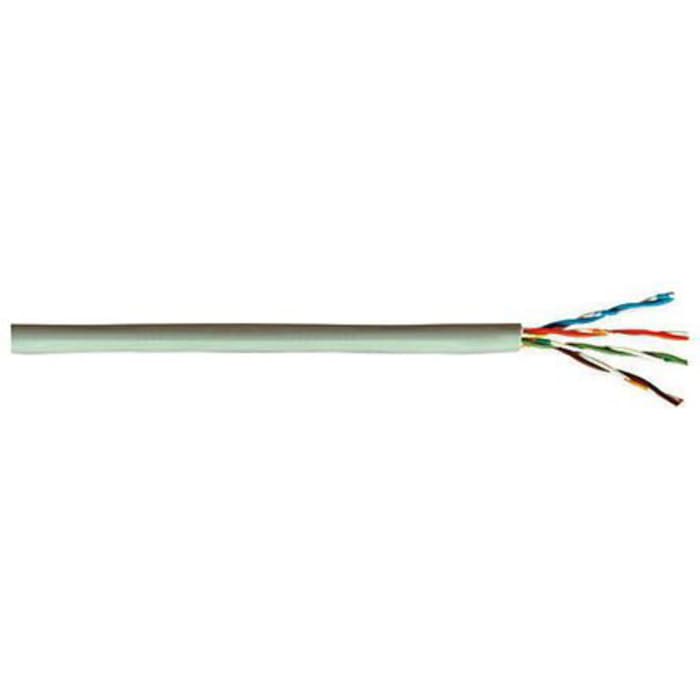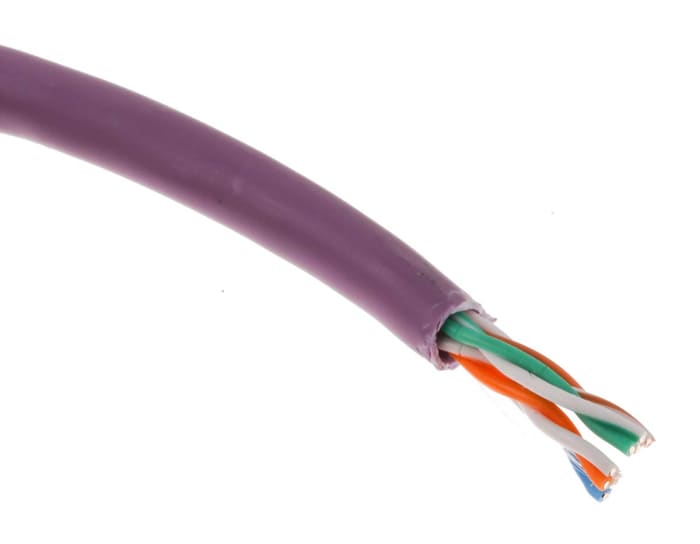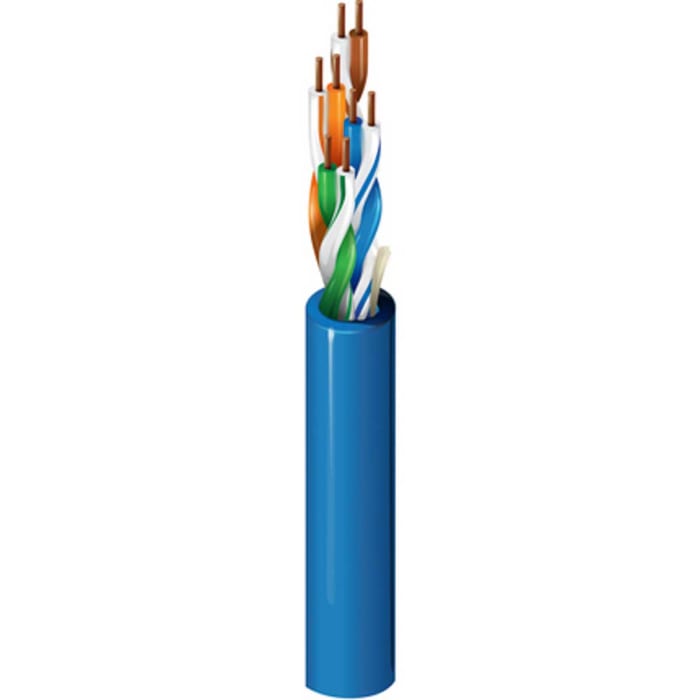RS PRO, 305m Cat5e, Grey, U/UTPUnshielded, Unterminated PVC Sheath

Technical documents
Specifications
Brand
RS ProLAN Category
Cat5e
Length
305m
Terminated/Unterminated
Unterminated
Shield Type
U/UTP
Shielded/Unshielded
Unshielded
Outer Sheath Material
PVC
Sheath Colour
Grey
Core Strands
1/24
Conductor Strand Type
Solid
Capacitance
≤1600pF/km
Cross Sectional Area
0.2 mm²
Number of Strands
1
Outer Diameter
5mm
American Wire Gauge
24 AWG
Standards Met
ANSI/TIA 568-C.2, EN 50173, EN 50288-3-1, IEC 61156-5, ISO/IEC 11801 2nd edition
Cable Shape
Twisted Pair
Country of Origin
Korea, Republic Of
Product details
RS Pro Cat5e Cable 100MHz
RS Pro Category 5e cables have been designed to deliver excellent performance in high speed network applications.
This Cat5e cable exceeds the minimum specified performance and prevents crosstalk helping to keep data safe.
Features and Benefits
·Designed to deliver robust performance and ensure optimum bandwidth
·Supports horizontal networking applications up to 100m
Product Application Information
This RS Pro Cat5e cable supports backbone and horizontal networking applications over distances up to 100 metres.
Why choose Cat5e over Cat5 cables
Cat5 and Cat5e are virtually identical and cannot be told apart by thickness, colour or material. Cat5e cables sometimes have a more durable protective jacket making them suitable for use for many more years than a Cat5 cable. Within the jacket the wiring inside tends to be much tightly twisted making them more resistant to crosstalk.
Cat5e cables are able to support networks that run up to 1 gigabyte per second making them ideal for use within IT where the fast transference of data is essential.
Cat5e cables also have a higher bandwidth of 350 MHz which means they can carry a lot more information from one system to another than Cat5 cables can.
What is crosstalk?
Crosstalk is the electromagnetic interference that occurs between cables when they are close to each other. This interference can lead to errors in data transmission.
Approvals
ANSI/EIA/TIA 568B.2:2002, ISO/IEC 11801:2002, RoHS, REACH.
P.O.A.
1
P.O.A.
1
Stock information temporarily unavailable.
Please check again later.
Technical documents
Specifications
Brand
RS ProLAN Category
Cat5e
Length
305m
Terminated/Unterminated
Unterminated
Shield Type
U/UTP
Shielded/Unshielded
Unshielded
Outer Sheath Material
PVC
Sheath Colour
Grey
Core Strands
1/24
Conductor Strand Type
Solid
Capacitance
≤1600pF/km
Cross Sectional Area
0.2 mm²
Number of Strands
1
Outer Diameter
5mm
American Wire Gauge
24 AWG
Standards Met
ANSI/TIA 568-C.2, EN 50173, EN 50288-3-1, IEC 61156-5, ISO/IEC 11801 2nd edition
Cable Shape
Twisted Pair
Country of Origin
Korea, Republic Of
Product details
RS Pro Cat5e Cable 100MHz
RS Pro Category 5e cables have been designed to deliver excellent performance in high speed network applications.
This Cat5e cable exceeds the minimum specified performance and prevents crosstalk helping to keep data safe.
Features and Benefits
·Designed to deliver robust performance and ensure optimum bandwidth
·Supports horizontal networking applications up to 100m
Product Application Information
This RS Pro Cat5e cable supports backbone and horizontal networking applications over distances up to 100 metres.
Why choose Cat5e over Cat5 cables
Cat5 and Cat5e are virtually identical and cannot be told apart by thickness, colour or material. Cat5e cables sometimes have a more durable protective jacket making them suitable for use for many more years than a Cat5 cable. Within the jacket the wiring inside tends to be much tightly twisted making them more resistant to crosstalk.
Cat5e cables are able to support networks that run up to 1 gigabyte per second making them ideal for use within IT where the fast transference of data is essential.
Cat5e cables also have a higher bandwidth of 350 MHz which means they can carry a lot more information from one system to another than Cat5 cables can.
What is crosstalk?
Crosstalk is the electromagnetic interference that occurs between cables when they are close to each other. This interference can lead to errors in data transmission.
Approvals
ANSI/EIA/TIA 568B.2:2002, ISO/IEC 11801:2002, RoHS, REACH.



